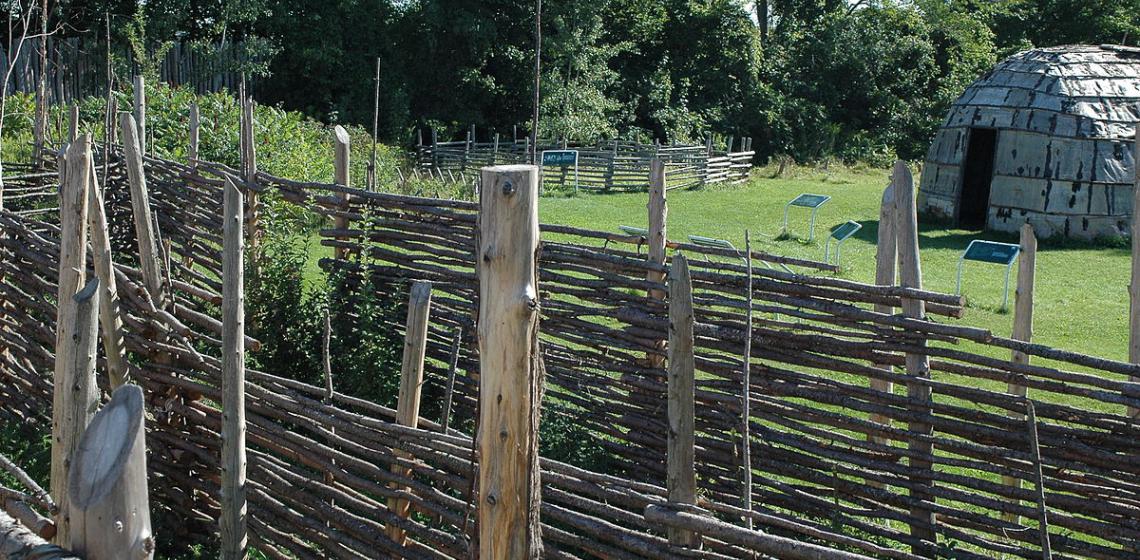Museum of Ontario Archaeology (CA)

Situated beside the museum on a flat plateau overlooking the Medway River and Snake Creek is the 500-year-old Neutral Iroquois Village site. The Lawson Archaeological Site may have housed upwards of 2000 people at the height of its occupancy.
Ancestral communities selected this location for its defensible characteristics, access to water, and proximity to a wide variety of animals, fish and wild plants. The site is five acres in size. Three-quarters of the Lawson site remains covered by trees and is undisturbed by previous farming or archaeological digs.
In 1979, Dr. Finlayson, executive director of the Museum of Indian Archaeology, and other Museum staff began work reconstructing previously excavated elements of the Lawson Site, including a portion of the North Palisade, and a longhouse based on the outline of designated Longhouse 1 uncovered in previous excavations. These developments were in anticipation of the new Museum to be built on the property and represented the earliest expression of the interpretative presentation of the Lawson Site by the Museum. Designated Longhouse 2, a smaller structure, was constructed in 2002.
Through the years, the Lawson Village reconstruction has had to be rehabilitated or replaced on several occasions. Significant rebuilding projects were undertaken in 1991 (longhouse), 2000 (palisade) and 2007/8 (longhouse).
Text source: archaeologymuseum.ca and mhc.ca/digital-exhibits/lawson/lawson-site-reconstruction
